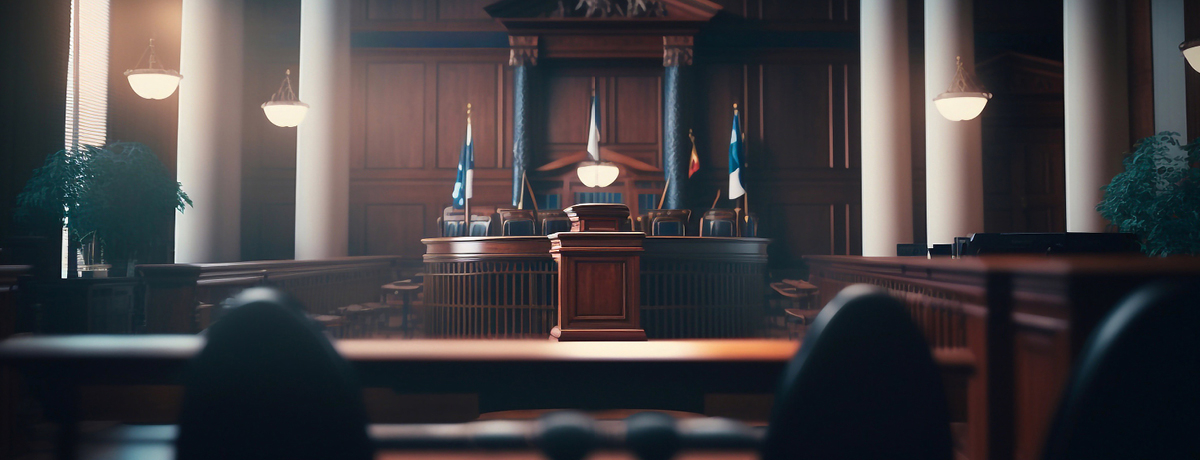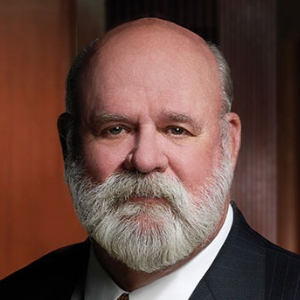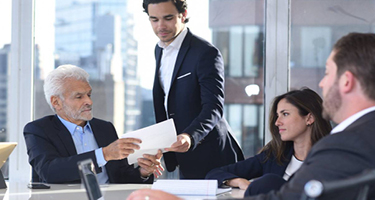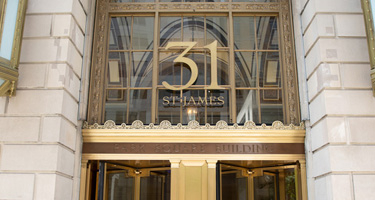LET’S TALK about persuasion. We learn to exercise this important attribute almost as soon as we’re out of the womb. We persuade our mother (without our knowing it) to feed us, keep us warm and change our diapers. As we get older, we persuade our parents to give us new freedom and forgive both the dent we put in the car and the C we got on our report card. We persuade others to befriend us. We want to persuade our enemies to stay away or come forward, depending on our mood at the time.
In adulthood, when you become a lawyer, you want to persuade a firm to hire you. You want to persuade a partner to let you work with them on a case, then eventually to try a case on your own. At this point, you need to gather all the things you’ve learned throughout life about persuasion, to marshal your forces. And you use the same persuasive methods you’ve used before. Such persuasion must be real—it must be natural and cannot appear contrived.
I’ve always felt that persuasion of jurors starts with your earliest contact with them. Generally, that’ll be either out in the hall as you enter or when you’re introduced to the panel. Before you can persuade that jury to help your client, a few things need to happen. The jury must like you, trust you and be interested in the story of the client that has brought you here.
If you think about it, we’re all pretty much the same. If you go to a seminar and meet a lawyer, you’re not going out of your way to get to know or work with him unless you like him and he’s credible to you. At that point, you’re amenable to listening to him. Jury panels are like that.
How to become likeable and credible? Let’s start with being comfortable in your own skin. Whoever you are—whether your personality is good, bad or ugly—you need to be yourself and get comfortable with yourself before you speak with the jury. The more open and receptive you are, the more they’ll return the favor. To gain credibility, you first must tell them the truth.
Here’s an example that hurts lawyers on voir dire. You say to the panel, “All I want is 12 fair and impartial jurors.” Within 20 minutes, a member of the panel offers information that makes you think he or she would be a juror for your opponent. You immediately do everything you can to disqualify him or her. That’s not necessarily the jury’s idea of your wanting fairness and impartiality. Instead, say “Ladies and gentlemen, both sides would like to find jurors who are more like our clients and who are likely to respond well to them. And we want a fair trial. But there are going to be panel members here whose background might lead them to have biases against my client. One of our jobs is to ferret those out during questioning in voir dire and use our strikes to keep them off the jury.”
Another way to maintain credibility is to do what you tell people you’ll do. If the judge says, “Mr. Branson, I need to take a break here. Can you finish in five minutes?” If you reply yes, then you need to move heaven and earth to finish in five minutes, because every minute thereafter, the jury believes you’re lying to the court—and if you’ll lie to the court, you’ll lie to them.
Once you’ve established yourself as likeable and credible, and convinced the jurors that your client has an interesting story, remember as you progress through the trial that the jury wants the lawyers to be themselves. If they see a different person than the one they came to know during jury selection, it’ll deal a blow to your credibility. An example: I was once trying a case, and a lawyer portrayed himself as Mr. Goody Two Shoes, playing up to the jury. We had a break. I came back to the courtroom to find the lawyer harshly dressing down his paralegal. I turned and saw that two jurors had come into the back of the courtroom without the lawyer seeing them. Thereafter, he wasn’t able to schmooze with the jury and it was quite obvious he had lost credibility with them. Whatever your personality, it needs to be consistent from beginning to end. There will be times it’s necessary to get fussy with a witness, but you don’t need to do that in the beginning. The jury will often get angry before you have to.
Another thing to beware: gilding the lily. Your lawsuit has good points and bad points. You need to do your best to emphasize the former and make the jury understand the latter. If you try to turn a sow’s ear into a silk purse, you’ll likely end up losing the value of even the sow’s ear.
I also see lawyers agree with everything a witness says by nodding, or disagreeing with a head shake. If it’s your witness, you don’t need to tell the jurors you agree. They already know you do. If it’s the other side’s witness, most jurors will also know what you think. Remember, too, that not every witness called by the other side needs to be cross-examined. Before you decide to cross-examine, think about what the witness has done to hurt your case, if anything—and if they haven’t, it might be better not to give them another opportunity to do just that.
As for persuasion during a trial, I like to pick a witness order that starts the day with a strong witness, has another one before lunch and a third strong one at the end of the day. After several decades of trying lawsuits, I’ve decided I probably should have more closely followed all those suggestions to “hurry along, Mr. Branson.” There’s a lot to be said for making your point by getting in and getting out. I’ve found that both judge and jury seem happier if I can get what I need in less time.
I’ve seen emotions run the gamut in the courtroom. Sometimes a good laugh, particularly if it’s at your own expense, is worth it. Crying can be appropriate if it’s a true expression of emotion by your witnesses (or by you). Jurors unanimously react negatively if they think any emotion is being faked. Authenticity and persuasion are closely linked.
Remember that as a young lawyer you sometimes don’t get to choose the cases you try. But I’ve never seen a lawyer win a case in which the jury didn’t think he believed in his case and his client 100%. It looks and sounds hollow when a lawyer doesn’t believe in the client. A great trial lawyer of old named Warren Burnett used to say he considered himself a knight clad in the shining armor of his client’s cause. I think Warren had it right.
Frank Branson has been trying personal injury lawsuits since 1969. He has been fortunate to receive a number of honors for his ethics, professionalism and capability in the courtroom, resulting in recoveries for many deserving clients. He has also been President of the local ABOTA chapter and been inducted into the International Academy of Trial Lawyers and the International Society of Barristers. His firm recently tried a product liability lawsuit where the jury awarded $242 million, which was reduced by the Court of Appeals to $200 million, and settled to the satisfaction of all parties while pending in the Supreme Court of Texas. He and his wife, Debbie, have practiced law together for 40 years and still very much enjoy trying lawsuits and representing clients in the courtroom.





































